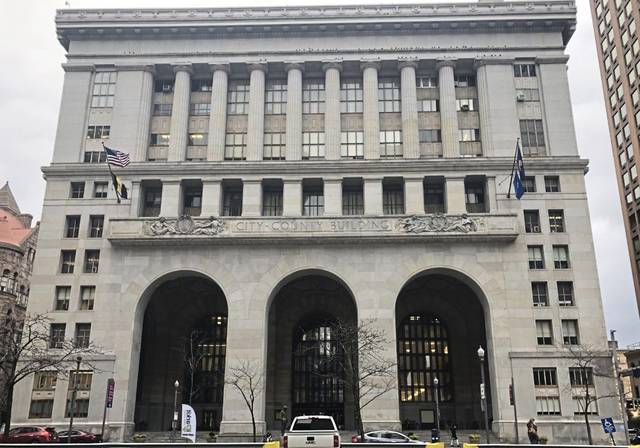Voters in the City of Pittsburgh will decide in November whether the city charter should be amended to strengthen the powers of its Citizen Police Review Board.
City Council on Tuesday passed the legislation that will put the question on the ballot in November. The bill has the support of Pittsburgh Public Safety officials, Mayor Bill Peduto and other city officials.
Councilman Ricky Burgess called it an important move toward reconciliation and healing.
If approved by voters, the charter would be amended to give the police review board more power to investigate police misconduct and civil rights complaints against officers.
The language of the bill was tweaked since it was introduced in June after Burgess met with public safety officials including police Chief Scott Schubert, the review board’s Executive Director Beth Pittinger and others, Burgess said.
The Citizen Police Review Board is an independent agency created and funded by the city.
Under the proposal, police officers and other police bureau personnel would be required to cooperate during an investigation by the board. Refusal would be grounds for firing.
The legislation would require the police chief and public safety director to hold off on any disciplinary action against an officer being investigated by the review board until the investigation is over. It also would require the city controller to conduct regular fiscal audits of the review board.
The legislation initially required officers and police bureau personnel to cooperate “fully” during an investigation. The word “fully” was removed after consulting with police officials, Burgess said.
Robert Swartzwelder, president of Fraternal Order of Police Fort Pitt Lodge 1, has previously said the CPRB already has the power to force cooperation as outlined in the bill. He didn’t immediately respond to messages seeking comment Tuesday.
The changes also could expedite investigations by permitting immediate access to evidence gathered by the city’s Office of Municipal Investigations, CPRB Executive Director Beth Pittinger has said.
Under current rules, the board must wait until OMI concludes an investigation before it can review evidence, including statements by officers and witnesses.
Pittinger didn’t return messages seeking comment Tuesday.
Seven city residents serve on the board, which was formed in 1997.
The mayor appoints three members and the other four members are nominated by city council. Two members of the board must be law enforcement professionals, but none can be presently employed in law enforcement.
Members of the board aren’t paid.
The changes to the board are among a bevy of reforms championed by city leaders that have been spurred in part by community activism since the May 25 killing of George Floyd by Minneapolis police. In the weeks since, there have been regular protests in the region and officials have been open to talking about reforms.
City council has created a racial equity commission and committed itself to a 10-point plan to address racial inequities. Council also is considering a ban on the use of chokeholds by police.
The city also is creating an Office of Community Health and Safety to help deal with problems that are now dealt with by police. On Monday, the city announced a new pilot program to divert some people from the criminal justice system to receive the help they need instead of punishment.








